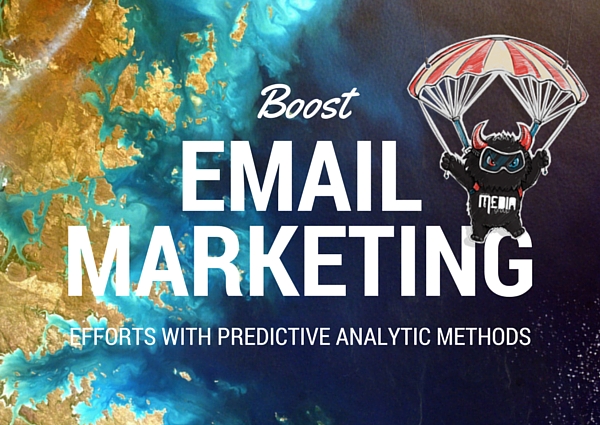Predictive Analytics Methods Give a Boost to Your Email Marketing Efforts
 https://www.omahamediagroup.com/images/uploads/monster_gallery/Omaha-Media-Group-Black.jpg
https://www.omahamediagroup.com/images/uploads/monster_gallery/Omaha-Media-Group-Black.jpg

It is needless to say that email marketing is one of the most effective digital media marketing tool available right now. It is also very cost-effective and has a high return on investment. However, it does require persistent effort and there is still a considerable amount of wastage.
But with growth of data mining and better forecasting techniques, marketers can now collect petabytes of data every year related to their customers that help them study various patterns and better target their marketing messages. Although much more popular with e-commerce managers, predictive analytics is now being adopted to study customer behaviors and other metrics and improve the effectiveness of email marketing.
Most importantly, predictive analytics tools are allowing the retailers to successfully list their database and create small groups, or segments, based on demographical, behavioral or psycho-graphic data that they have extracted which has improved lead generation and sales growth. These software applications can even predict the amount of sales a particular customer would generate over the entire customer lifecycle and helps to vary efforts accordingly.
Let us see how analytics works over the three stages of a customer lifecycle.
Acquisition- The beginning
New customers, or prospects, are targeted during this acquisition stage with welcome emails and generous promotional offers. This is the time to indulge the new patrons to create a good, lasting rapport; predictive analytics are applied here also. A/B tests, or more complex multivariate tests, are commonly used to understand which particular email or combination of emails are most effective.
Most businesses already have predefined segments in different markets. Based on predictions of the behavioral data, product usage and buying patterns, the new acquisition can be included in a particular homogeneous segment. Different emails will have to be sent to this group and it will have to be determined which style of emailing resonates best.
Growth stage- Time for Personalization
Segmentation leads to better conversion and click-through. A single generic message won’t be relevant to all the multivariate groups. So personality traits, characteristics and buying patterns of an individual are now analyzed. However, this approach is based on customer history. A customer who has once bought a product or availed a service is more likely to acquire it again. But there are limitations; this approach doesn’t always correctly forecast the future activities of the customer.
Predictive techniques, on the other hand, can predict what else the customer may need. That automatically increases the range of choice for the consumer and he or she is more likely to make a purchase.
Retention- Building Long Lasting Relationships
Marketers usually give extra attention to this stage as they are dealing with loyal customers with proven buying records. Sending appreciatory emails every now and then helps to build a strong relationship and at the same time keeps your brand at the top of the customer’s mind. Predictive analytics collect real-time customer data and analyzes it to tell you when the customer is most likely to buy again. The frequency of purchase, number of purchase during the lifetime and total value of the deals are considered to make a forecast. You can send “win-back messages” along with customized offers to induce a positive action.
Predictive analytics is an indispensable part of any marketing effort now. With its adoption, email marketing has also become more result-oriented and measurable. You are doing your business a great disservice if you are still not using it.
Are you looking to boost your email marketing efforts? Contact our marketing specialists today!
Posted In: E-Mail Marketing, SEO and Search Marketing


























